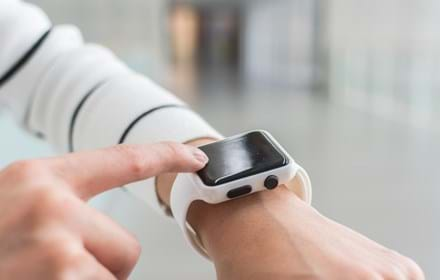
Scientists reveal brain’s ‘addiction’ to sugar has part in type 2 diabetes
Researchers in Germany have discovered that the brain actively takes sugar from the blood – which could trigger people to eat more sweet foods.
In turn, being overweight can increase the risk of a person developing related health conditions, including type 2 diabetes.
The team from the Technical University of Munich found that certain cells in the brain were able to regulate part of the digestive process. Previously researchers around the world had assumed that this was a passive process.
A "sugar switch" in the brain could make people crave sweet food
The results of the study recently published in the journal Cell, included that the transportation of sugar into the brain was regulated by so-called glia cells that react to hormones such as insulin or leptin; a process previously believed only possible for neurons.
Matthias Tschöp of the Chair for Metabolic Diseases at the Technical University of Munich, Director of the Division of Metabolic Diseases and also of the Helmholtz Diabetes Center (HDC) at Helmholtz Zentrum München, was looking at how control centres in the brain can help people control their metabolism in order to adjust to where they are.
The study found that the brain has the highest sugar consumption of all organs, in addition to being able to control when you get hungry.
Dr Cristina García-Cáceres, Neurobiologist at the HDC and the study’s lead author, said: “We suspected that a process as important as providing the brain with sufficient sugar was unlikely to be completely random. We were misled by the fact that nerve cells apparently did not control this process and therefore first thought it to occur passively. Then we had the idea that glia cells such as astrocytes, which had long been misunderstood as less important ‘support cells’, might have something to do with transporting sugar into the brain.”
Researchers used advanced imaging technologies to show that hormones such as insulin and leptin act specifically on ‘support’ glia cells to regulate sugar intake into the brain, which they described as being like a “sugar switch”. Without insulin receptors, astrocytes became less effective at transporting glucose into the brain, particularly in the areas that decide whether or not you are feeling full.
Professor Tschöp said: “Our results showed for the first time that essential metabolic and behavioural processes are not regulated via neuronal cells alone and that other cell types in the brain, such as astrocytes, play a crucial role. This represents a paradigm shift and could help explain why it has been so difficult to find sufficiently efficient and safe medicines for diabetes and obesity until now.”
Based on what their study revealed about metabolism – how the body processes food – researchers hope their findings would improve the development of new treatments to help people control their appetite, keep weight down and reduce their risk of developing type 2 diabetes.
Support DRWF by making a donation here
Find out more about DRWF-funded research here
Find out more about DRWF fundraising here
For latest update follow DRWF on Facebook, Instagram and Twitter
To receive the charity’s latest bulletins as they become available, please sign up here
Read DRWF diabetes information leaflets here
Join the Diabetes Wellness Network here
I would like to make a regular donation of
I would like to make a single donation of
There are lots of ways to raise money to support
people living with all forms of diabetes.
Bake, Swim, Cycle, Fly ... Do It For DRWF!
Fundraise with us
Recent News


